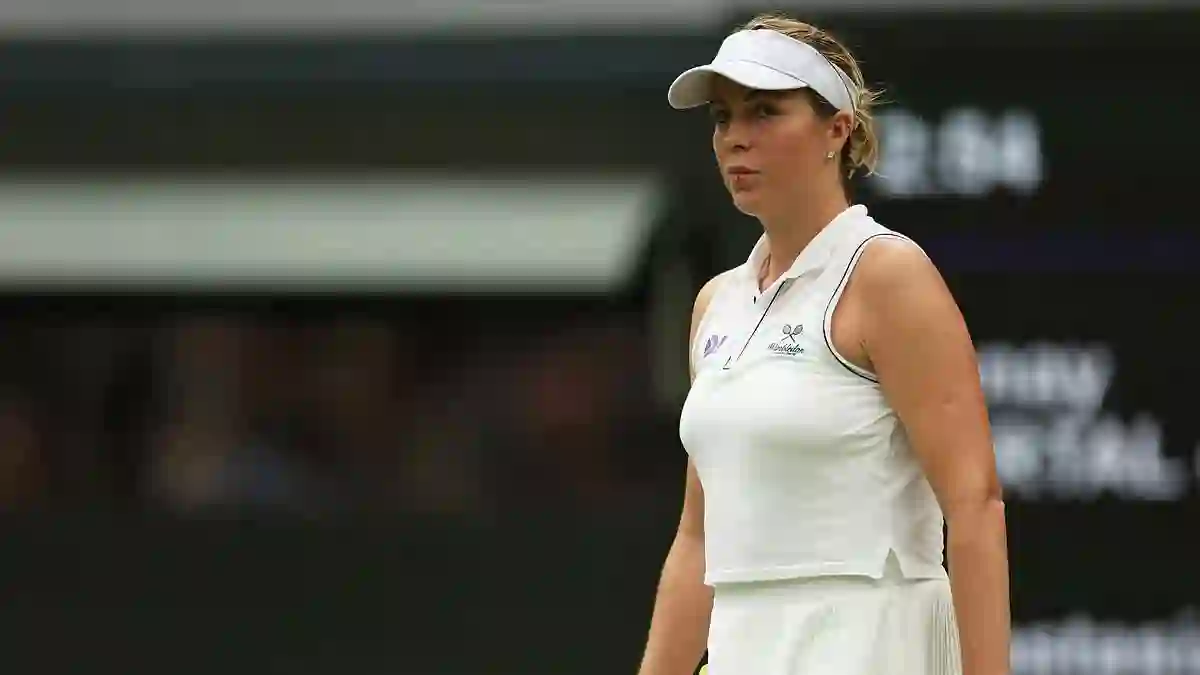Wimbledon is supposed to be a showcase of tradition, grace, and elite tennis—but on Sunday, the historic tournament found itself at the centre of a high-tech fiasco.
What should have been a standout moment for Britain’s Sonay Kartal turned into an awkward, frustrating scene involving a broken line-calling system, an outdated telephone, and accusations of home-court bias.
When Technology Goes Quiet, Confusion Takes Over
In a match already buzzing with energy, the drama escalated when a crucial volley from Kartal clearly landed out—but shockingly, no call came.
The AI-driven line-calling system, usually hailed as precise and emotionless, stayed silent.
That silence left the umpire, Nico Helwerth, scrambling for answers… literally, by calling for help on what looked like a relic from the ’70s.
Centre Court echoed with a robotic voice saying “stop, stop,” while Helwerth echoed the call in real time.
Meanwhile, the crowd watched in disbelief as the match paused for a three-minute tech check.
Eventually, the umpire declared the system couldn’t replay the point and decided the players would simply redo it.
Russian Star Claims Bias After Blown Call Benefits Kartal
Anastasia Pavlyuchenkova, the experienced Russian player on the other side of the net, wasn’t buying it.
She had been ahead in that first set and was confident the point should’ve gone her way.
After Kartal ended up winning the replayed point and the game, Pavlyuchenkova voiced her suspicions directly to the umpire.
“Because she is local, they can say whatever,” she told him. “They stole the game from me. They stole it.”
Her frustration was clear—and frankly, hard to blame, given the situation.
Wimbledon Admits AI Failure, Cites ‘Operator Error’
After hours of tension and speculation, Wimbledon organisers finally released a statement.
They admitted that the automated line-calling system had been accidentally deactivated on Pavlyuchenkova’s side of the court—for the entire game that included the controversial point.
According to the All England Club, this error came down to operator mishandling, and the umpire had followed “established procedure.”
But Pavlyuchenkova later revealed that Helwerth privately admitted he saw the ball was out but didn’t overrule it.
“I think he felt bad, a little bit,” she said.
The Debate Over Tech vs Human Decision-Making Grows Louder
Pavlyuchenkova didn’t hold back in voicing what many players are starting to feel—that tennis is at risk of becoming too automated.
“That’s why they sit in the chair,” she said about umpires.
“Otherwise, what’s the point? It becomes, like, robot-orientated.”
Her words echo concerns from other players too.
Emma Raducanu and Jack Draper have also questioned the effectiveness of AI officiating this week.
Even Jelena Ostapenko mocked the system earlier in the tournament, sarcastically applauding cameras after being foot-faulted.
Kartal Fights Hard But Falls Short in Fourth Round
Despite the drama, Sonay Kartal gave it everything on the court.
Walking out to the sound of thunder under a closed Centre Court roof, the 23-year-old Brit played with fire, despite her strapped-up right knee.
Her heavy spin and aggressive movement put Pavlyuchenkova under pressure, especially early on.
Still, the younger player struggled to convert break points—taking only three of 10 in the first set—and let chances slip through her fingers.
She ultimately lost the match in straight sets, 7-6 (3), 6-4.
A Promising Future for Kartal Despite the Exit
While the loss will sting—especially after all the controversy—Kartal walks away from Wimbledon with £240,000 in prize money, which she says could dramatically improve her preparation and training going forward.
Though her run ends here, her presence at Wimbledon, the level she played at, and the chaos surrounding her match have certainly put her in the spotlight.
Players Now Want Clarity—and Control—Back
Pavlyuchenkova’s frustrations, shared by others, are likely to fuel further debate over tennis’s growing reliance on technology.
While automation promises accuracy and neutrality, it also removes the human element that allows for intuition and judgment.
“Sometimes I think, am I crazy?” Pavlyuchenkova mused.
“I feel like the ball is out… but nothing happens. There’s no automatic call.”
With multiple stars now voicing concern, Wimbledon—and the tennis world—may be forced to rethink where the balance lies between tech and the human touch.



